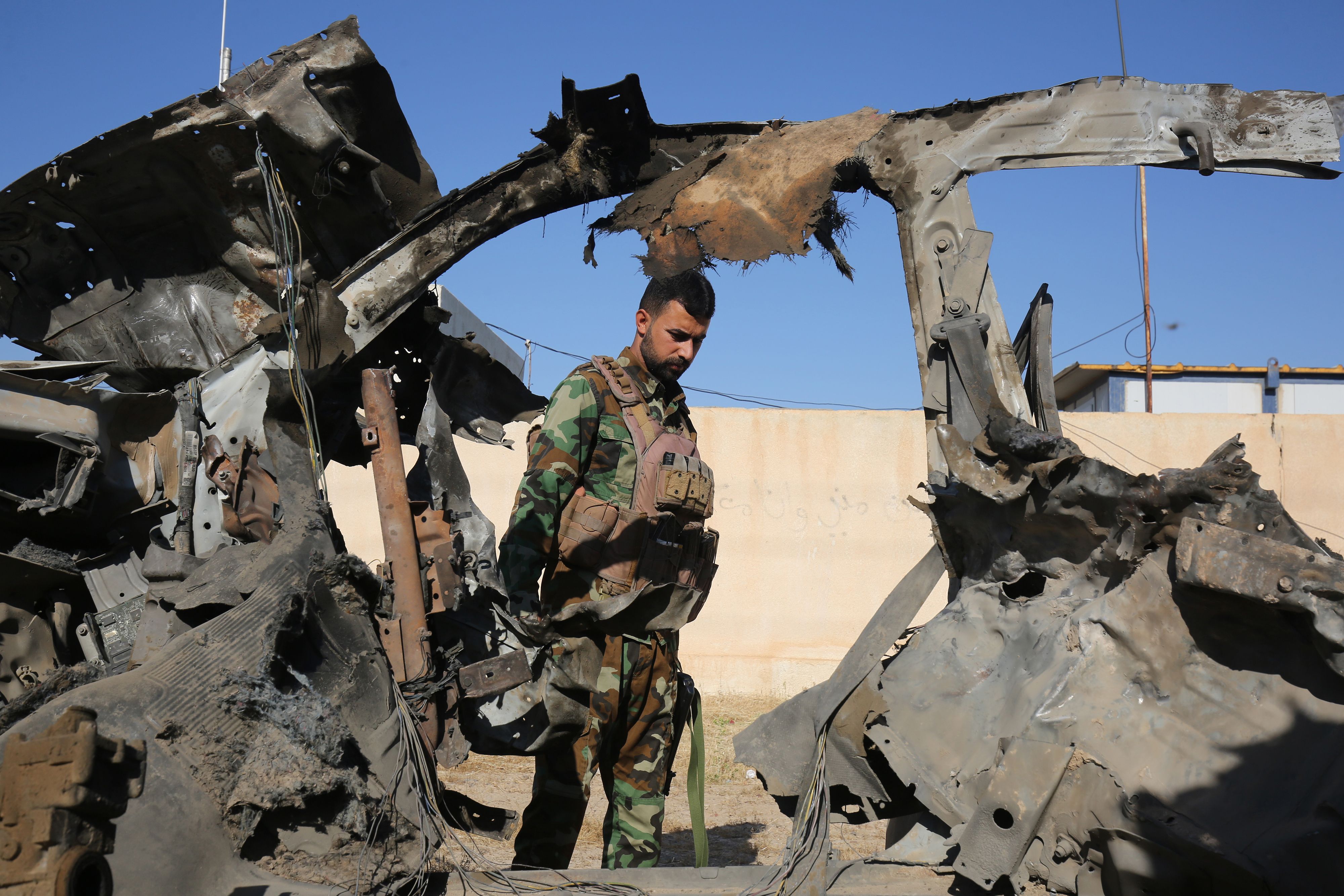Hossam al-Haddad
An Iraqi security source said on Sunday, January 17 that an explosive device had exploded against an Iraqi army force in the Sinjar district of Nineveh province in the north of the country.
The source told RT, “Preliminary information indicates that an explosive device has exploded on a group of Iraqi army elements, killing at least three of them.”
For its part, the Ministry of Defense mourned Lieutenant Colonel Haider Adel Muhammad, commander of the second regiment in the 73rd Infantry Brigade, 15th Infantry Division.
In a press release, the Ministry of Defense stated that “the heroic martyr, Lieutenant Colonel Haider Adel Muhammad, was killed while performing his holy duty, along with two soldiers, as a result of the explosion of an explosive device from the remnants of ISIS terrorist gangs while inspecting Al-Sharaea area north of Tal Afar.”
For several years, after the fall of the regime of late President Saddam Hussein, Iraq has suffered from great insecurity and the extension of the influence of the Iraqi armed factions that owe loyalty to Iran, which crowds out the US presence in Iraq.
Iraq is constantly witnessing vicious, violent attacks that each time cause a number of casualties, including civilians, while the Iraqi street also faces a number of threats, most notably the proliferation of weapons, tribal disputes and organized crime.
Iraq has also suffered, since the declaration of the establishment of ISIS in 2014, of terrorist attacks that have exacerbated the security unrest.
In the face of all this, the Iraqi parliament is now moving towards enacting a set of deterrent laws for anyone who incites terrorism and extremism, most notably the Law on Community Peace, while reviewing the laws in force and reactivating them in the country.
The head of the Committee for Peaceful Coexistence in the House of Representatives, Aboud Al-Issawi, told the Iraqi newspaper Al-Sabah in its Saturday issue that “the aim of this project is to prepare a road map based on fixed rules for peaceful coexistence in the country between the sects and components, so there was an urgent need to map and draw strategic policy and rules for community peace in Iraq.”
Issawi added that “the proposed law of the commission was read for the first time and amendments were made to it, and a parliamentary committee for coexistence was formed of 11 members representing the basic religious and national components of the country, as they had individual and collective activities in their regions.”
“The issue of societal peace in the country needs a culture that begins with school curricula to define coexistence, components and citizenship, and how to accept the other,” he emphasized, stressing that this culture remains a weapon and returns Iraq to its origins thousands of years ago after it was a cradle of ancient civilizations and peoples of different races lived in it.
He explained that “parliament has deterrent laws for anyone who pushes for incitement, terrorism and extremism in the legal and endowments committees.”
“There is a preliminary agreement to review the laws in force and re-activate them in the Iraqi reality and put them in parliament and add things that do not exist, such as the penal aspect with penalties, so that anyone who violates coexistence calls for terrorism and incites hatred,” he added.
As part of Iraq’s fight against terrorism, a police command in Basra province announced on Saturday the arrest of a suspect wanted in accordance with terrorism provisions.
The Iraqi News Agency (INA) quoted the police chief, Major General Abbas Naji, as saying that “the wanted person came from Wasit province,” adding that “the arrest was carried out through close inspection and follow-up in the province.”
For months, the Iraqi government, led by Prime Minister Mustafa al-Kadhimi, has been adapting campaigns to contain uncontrolled weapons as part of the determined efforts to enhance the security of Iraq and immunize it from potential attacks in light of the persistent influence of the armed Shiite factions loyal to Iran.
The government confiscated thousands of uncontrolled weapons in several areas in the Iraqi provinces, noting that the security operations contributed greatly to the decrease in the percentage of societal crimes and achieved the goals.
In 2017, Iraq declared victory over ISIS by regaining its entire territory, which was estimated at about a third of the country overrun by the terrorist organization in the summer of 2014. But the remnants of the terrorist organization are still active through its sleeper cells in several Iraqi regions, taking advantage of the turbulent security and political situation to carry out repeated attacks on different regions.








































admin in: How the Muslim Brotherhood betrayed Saudi Arabia?
Great article with insight ...
https://www.viagrapascherfr.com/achat-sildenafil-pfizer-tarif/ in: Cross-region cooperation between anti-terrorism agencies needed
Hello there, just became aware of your blog through Google, and found ...